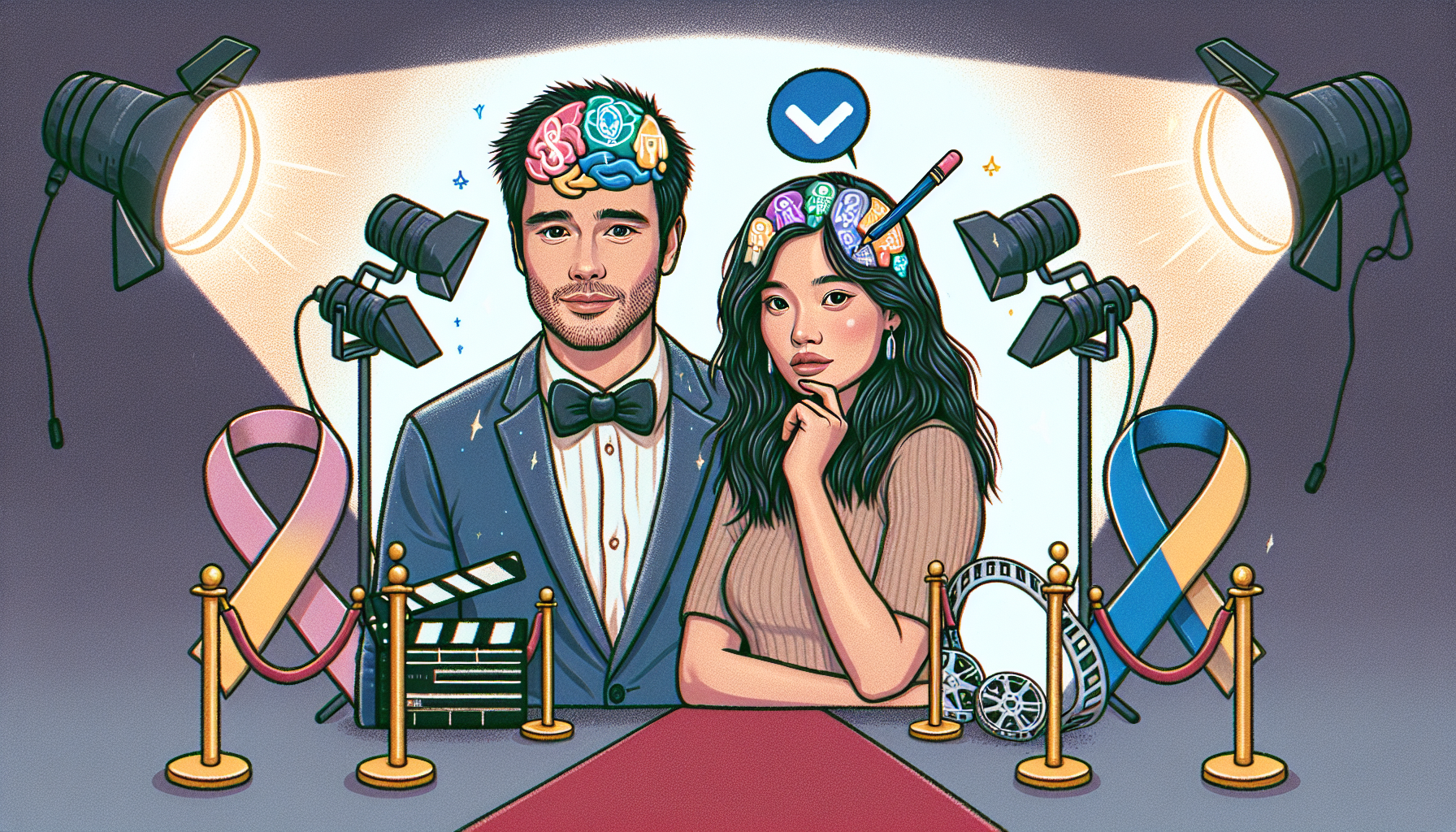The Curious Case of Park Bom and Lee Min Ho: A Dialogue on Mental Health Awareness
In the world of K-pop and Korean dramas, where reality and fantasy often blend, a recent incident involving Park Bom, a former member of the girl group 2NE1, and popular actor Lee Min Ho has intrigued fans and raised concerns. This unusual story unravels themes of celebrity obsession and mental health, challenging us to reflect on our understanding of fame and personal boundaries.
The Genesis of the Controversy
The saga began when Park Bom posted side-by-side photos that appeared to simulate a video chat with Lee Min Ho, accompanied by a caption calling him her "husband." While many initially took it as a light-hearted or humorous jab, it soon fueled curiosity. Was Park Bom participating in a light-hearted, fabricated trend, or was there something more personal at play? Her fans were left guessing, as these images mimicked a popular online trend where individuals create doctored photos with celebrities, perhaps indulging in their wildest dreams of meeting their favorite stars.
Escalating Engagements: Looping Back with More Posts
Over time, the buzz tapered off only to reignite when Park Bom posted new pictures with Lee Min Ho on a secondary Instagram account, once again hinting at a supposed domestic union with him. D-Nation Entertainment, her agency, issued clarifications suggesting that Park Bom was merely expressing a fan-like admiration for the actor. Yet, when she posted that her previous assertions were "true," concerns about her well-being began to take center stage, especially considering her history in the public eye.
Lee Min Ho's Official Stance
Navigate to the epicenter of the drama, and you'll find Lee Min Ho's agency denying any personal acquaintance with Park Bom. His official statement seemed designed to stabilize the whirlwind of rumors swirling around the celebrity circles. This public denial hinted not only at an unexpected alignment of fame but also spotlighted the repercussions of such interactions on both concerned parties. The statement raised a fundamental question: how should celebrities manage when fictional stories about their personal lives start being mistaken for reality?
The Mental Health Concerns
Park Bom's story brings mental health into focus. Her insistence on a narrative contrary to what Min Ho confirmed raises concerns that transcend entertainment gossip. Advocates for mental wellness caution against dismissing her claims lightly. Instead, they urge understanding and support, fearing that stigmatization might otherwise deter individuals from seeking the help they might need. As voices within and outside the industry suggest, perhaps this is a call for Park Bom to take stock of her mental wellness, with support from her circle.
Public Reaction: A Mixed Bag of Empathy and Caution
As expected, such a perplexing narrative has generated a panel of social commentary. On various online platforms, fans and critics discuss whether the public's understanding of Park Bom's mental health is sufficient. While some offer empathy and call for understanding, others criticize it as a serious divergence necessitating intervention. This paradox exemplifies the challenges celebrities face when they navigate personal issues under society's ever-watchful lens.
The Role of Media and Public in Celebrity Narratives
This incident begs the question: to what extent should the media delve into personal aspects of celebrities' lives, especially when it pertains to mental health issues? The K-pop industry, vibrant and highly demanding, often finds its stars at the crossroads of public scrutiny and personal vulnerability. The media, as much as it informs, can inadvertently inflate issues when privacy is necessary. Hence, balanced reporting and public sensitivity play essential roles in respecting boundaries around mental health discussions.
Moving Forward: A Call to Action
As we reflect on Park Bom and Lee Min Ho's narrative, it encourages us to question our consumption of celebrity culture. How do we, as fans or media consumers, respect the line between admiring public figures and intervening in their personal spaces? Can industries renowned for their stringent performance criteria hold space for vulnerabilities, allowing artists to flourish without the stigma of mental health issues? In wrapping up, let this serve as an invitation for broader societal dialogue: how can we better support public figures amidst struggles that transcend the stage and screen?
In navigating these difficult waters, individuals and societies alike are reminded of the paramount importance of empathy and understanding. We can collectively champion a world that nurtures both its celebrities and their humanity. After all, perhaps the greatest encore we can give is one that champions mental wellness for all. What are your thoughts on how we can best support those in the limelight facing similar challenges? Feel free to share your insights and continue this critical conversation.

